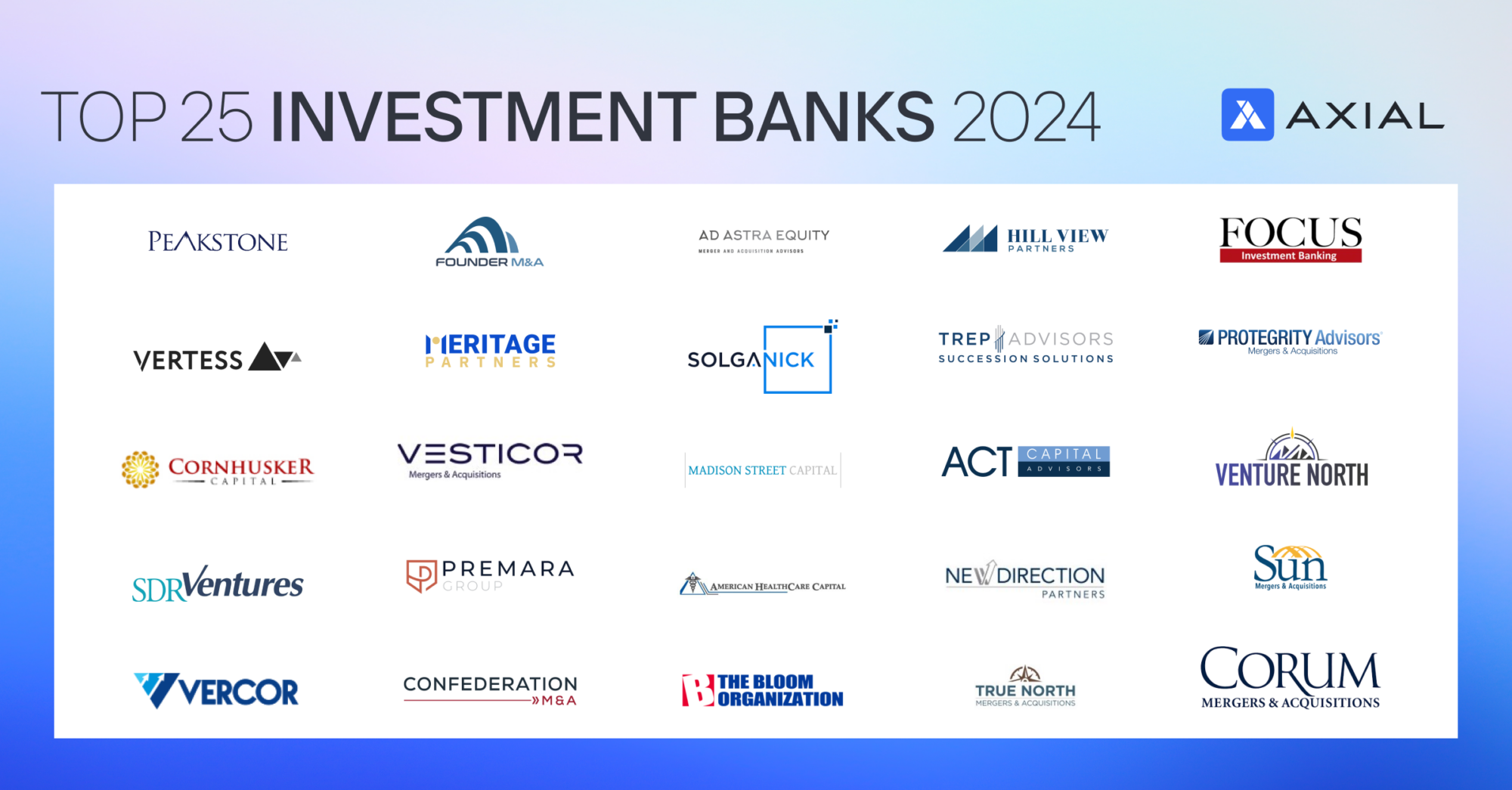
Top 25 Lower Middle Market Investment Banks | 2024
Axial is excited to release our 2024 Lower Middle Market Investment Banking League Tables. To assemble this list, we reviewed…
Tags
Over the last 36 years as an investment banker I have had the pleasure of completing many wonderful transactions. One, however, turned out to be a horror show of the first order.
In 2002 I represented a public company. My client had significant revenue and a decent market cap; however it was losing money and in need of capital. We were approached with a lucrative merger proposition by 800America.com, a publicly traded dot com business, with $30 million of revenue that was turning a tidy profit and had $22 million of cash on its balance sheet. ( I identify them today, as their story and that of the company’s majority owner and CEO, David Rabi, hit the headlines soon after we decided not to complete the merger transaction.)
Let’s start with the end of the story – 800America.com was a cleverly conceived film set with no money and no real businesses behind the scenes. Fake SEC filings, fake financials, fake bank accounts, and hired actors in temporary offices to play corporate executives. Even the name David Rabi was an alias – he had at least six other identities during a long career as a con man.
The SEC finally caught up with them and David Rabi was sentenced to federal prison, where he died in 2006.
At the beginning, we knew none of this. A series of delightful dinners with my client, myself, Mr. Rabi, and his investment bankers (they were also misled), evolved into the determination to undertake a reverse merger with 800America. And so our confirmatory due diligence began.
I immediately focused on confirming the $22 million of cash on the balance sheet. I was presented with a neat binder of bank statements from Citibank which showed the usual detail. I asked for the contact info and permission to confirm the funds at Citibank. I was told they would get me a letter “soon.”
Not yet suspecting anything we moved on to other stages of due diligence. The company owned several web sites which we were told generated most of its revenue. The web sites were there. The sites looked a little shabby but I was no web expert and accepted the explanation of how they made money.
Meanwhile, 800America’s counsel was producing merger documents at light speed and we were inundated with paper to review.
Little hints started popping up during due diligence – an 800America executive who could not really explain some facet of their business; data requests that we were assured would be forthcoming shortly and then were promptly “forgotten”; the statement from the principal of a small Tennessee CPA firm who prepared their financials that 800America’s audited statements “were not really audited.”
I shared our nagging concerns with our client’s counsel. The SEC never publicly discloses when a public firm is under investigation. Our counsel went through a back door at the SEC and found out that 800America and David Rabi were being investigated. This was the final nail in our decision to terminate the transaction. Disaster avoided at the eleventh hour!
Most transaction dishonesties we encounter are far less elaborate and usually not criminally fraudulent. Failures to disclose, omissions of relevant data, covering up problems, and lies about personnel and customers are more usual. My job as an investment banker is to insist on a completely honest exchange between the parties. I don’t do this because I am a good Boy Scout (I am, but that is another story). I do it because I know that the inevitable result of such dealings is no deal.
Trust is the fulcrum of every successful transaction. When trust is lost, deals do not close. When there is trust in abundance, almost any challenge can be overcome.
While it has been said that our business culture is based on “caveat emptor” (buyer beware), wise principals and bankers in a transaction know they will profit most by always doing the right thing and thus building that all-important trust that closes the deal.
